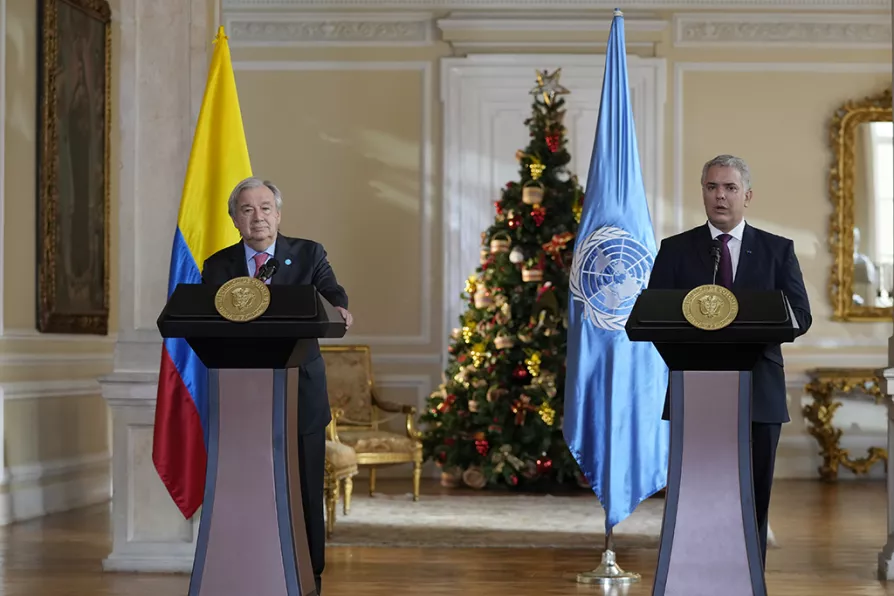RAMZY BAROUD offers six reasons why Netanyahu is prolonging conflict in the Middle East

 United Nations Secretary-General Antonio Guterres, left, and Colombia's President Ivan Duque, attend a joint press conference at the Presidential Palace in Bogota
United Nations Secretary-General Antonio Guterres, left, and Colombia's President Ivan Duque, attend a joint press conference at the Presidential Palace in Bogota
HAVING marked the fifth anniversary of its historic peace agreement on November 24, Colombia now looks towards another landmark date: next May’s presidential election.
Whoever succeeds the current government of Ivan Duque will have an enormous bearing on the agreement between the then government of Juan Manuel Santos and the Revolutionary Armed Forces of Colombia (Farc). The signing raised optimism for the future of a country blighted by decades of political violence.
Duque’s 2018 election victory, however, provoked genuine fears for the peace process. His party, the hard-right Democratic Centre (CD), founded in 2013 by former president Alvaro Uribe, opposed negotiations with the Farc and subsequently orchestrated the successful No campaign in which Colombians narrowly rejected the agreement before it was ratified through congress. It was Uribe who selected Duque, a low-profile senator, as the CD’s candidate for the 2018 election.

With Petro, Colombia has been making huge strides towards peace — but is all that at risk with the elections next year? MARK ROWE reports back after joining a delegation to the Latin American country

Colombia’s success in controlling the drug trade should be recognised and its sovereignty respected, argues Dr GLORY SAAVEDRA

Alvaro Uribe is found guilty of witness tampering and procedural fraud, reports NICK MACWILLIAM











